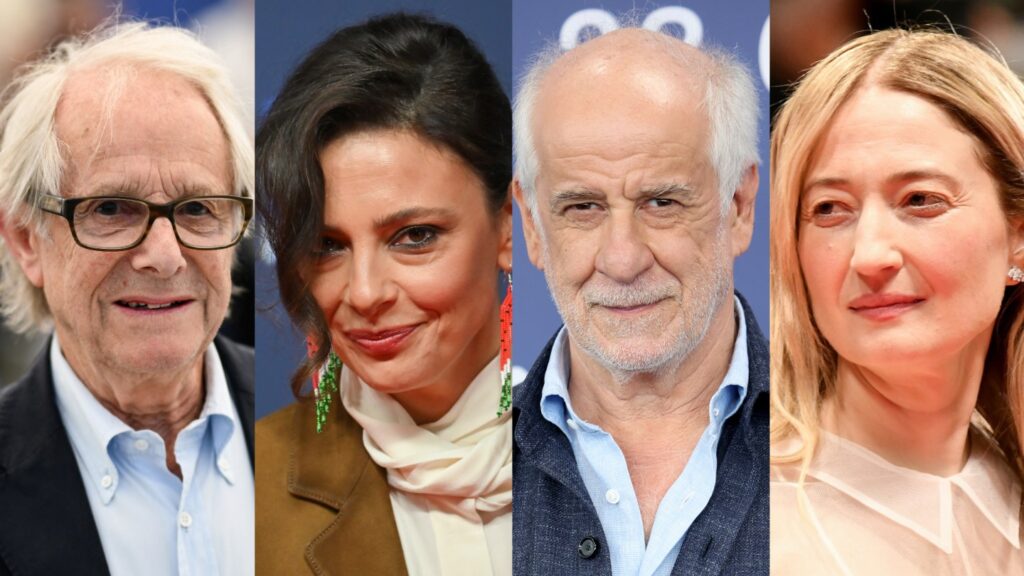Hundreds of Italian and international filmmakers, artists and cultural figures have signed an open letter calling on the Venice Film Festival to take a “clear and unambiguous stand” against what they describe as genocide and ethnic cleansing in Gaza.
The appeal, organized under the banner of Venice4Palestine (V4P), was sent on Friday to the Venice film festival umbrella organization the Biennale di Venezia, as well as the festival’s independent sections Venice Days and International Critics’ Week.
In the letter, the group accuses the Israeli government and military of carrying out genocide in Gaza and ethnic cleansing across Palestine, and urges the festival to avoid becoming “a sad and empty showcase” by instead providing “a place of dialogue, active participation, and resistance, as it has been in the past.”
Signatories include British filmmaker Ken Loach, Italian actor Toni Servillo — star of 2025 Venice opener, La Grazia from Paolo Sorrentino, Italian actress and director siblings Alba and Alice Rohrwacher, actress Jasmine Trinca, French directors Céline Sciamma and Audrey Diwan, British actor Charles Dance and Palestinian directorial duo Arab Nasser and Tarzan Nasser, who won best director in Cannes Un Certain Regard this year for their latest film Once Upon A Time In Gaza.
The group references the deaths of nearly 250 Palestinian media workers since the start of the conflict and frames artistic institutions as responsible for fostering awareness and resistance.
“As the spotlight turns on the Venice Film Festival, we’re in danger of going through yet another major event that remains indifferent to this human, civil, and political tragedy,” the letter reads. “‘The show must go on,’ we are told, as we’re urged to look away — as if the ‘film world’ had nothing to do with the ‘real world.’”
For once, the letter continues, “the show must stop. We must interrupt the flow of indifference and open a path to awareness,” adding, “there is no cinema without humanity.”
The letter calls on the festival to host events highlighting Palestinian narratives and to create “a constant backdrop of conversations and initiatives” addressing “ethnic cleansing, apartheid, illegal occupation of Palestinian territories, colonialism and all the other crimes against humanity committed by Israel for decades, not just since October 7.”
In a statement in response to the letter, the Biennale said they and the Venice festival “have always been, throughout their history, places of open discussion and sensitivity to all the most pressing issues facing society and the world. The evidence of this is, first and foremost, the works that are being presented [at the festival].” The statement noted that The Voice of Hind Rajab, a real-life drama from Tunisian director Kaouther Ben Hania, about the killing of a 5-year-old Palestinian girl by Israeli forces in Gaza in 2024, will be screening in competition at Venice this year.
The Biennale noted that last year’s Venice lineup featured Israeli director Dani Rosenberg’s film Of Dogs and Men, shot in the wake of the Oct. 7 attacks.
“The Biennale is, as always, open to dialogue,” the statement said.
A separate group of Italian artists, the Artisti #NoBavaglio network, has called for a public “stop genocide” protest on August 30, on the first weekend of the festival.
The 82nd Venice international film festival runs Aug. 27 to Sept. 6.

